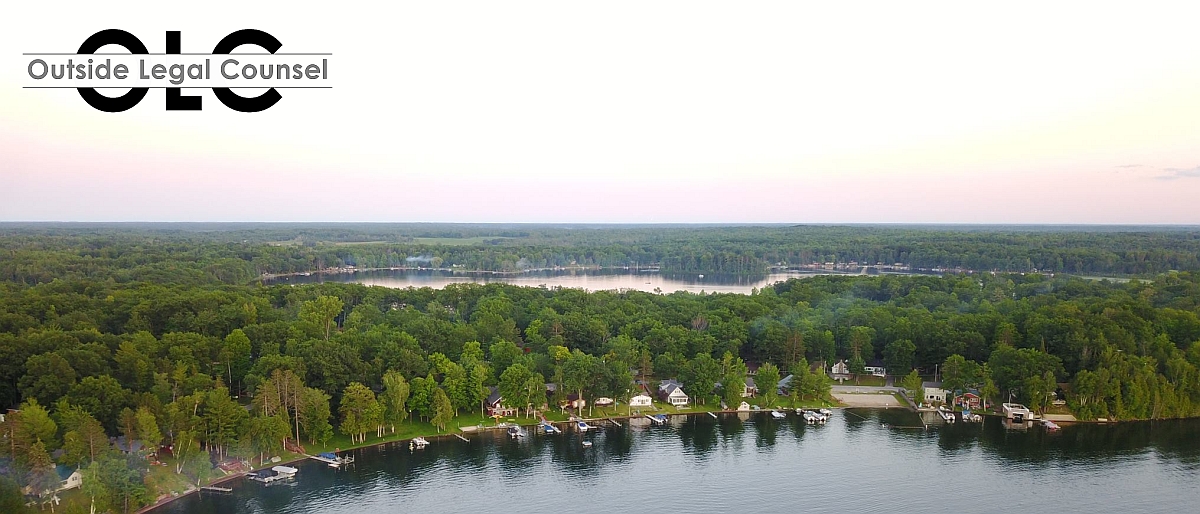On December 29, 2010, the Michigan Supreme Court released its lengthy 4-3 opinion regarding Michigan riparian rights, a term to describe legal rights to use waterfront property for certain activities like building recreational boat dock.
The case, 2000 Baum Family Trust v. Babel, involved property owners with lots that front Lake Charlevoix (the “front-lot owners”) yet are separated from the water by Beach Drive, a public road maintained by the Charlevoix County Road Commission. These front-lot owners along Beach Drive, believing they have riparian rights, built seasonal docks from the shoreline into Lake Charlevoix even though their lots do not touch the shoreline. Local neighbors without lake front access (the “back-lot owners”) also began maintaining their own docks and storing their boats along Beach Drive on Lake Charlevoix.
In 2007, the front-lot owners sued the back-lot owners and the Charlevoix County Road Commission claiming trespass, nuisance, and sought a court order to have the back-lot owners’ docks permanently removed.
In the trial court, the front-lot owners argued that because their lots were only separated from the water by a roadway parallel to the lake, their lots were riparian and permits their docks only. The Charlevoix County Road Commission opposed arguing that the front-lot owners did not possess riparian rights because none of front-lot owners’ properties abuts Lake Charlevoix as the properties were separated from Lake Charlevoix by a road owned and maintained by the county.
The trial court and the Court of Appeals ruled the front-lot owners did not possess riparian rights because the dedicated public Beach Drive exists between the front-lot owners’ property and the lake. As such, any possible riparian rights are cut off.
The Michigan Supreme Court reversed. In the majority opinion, Michigan’s high court ruled that pre-1967 dedicated public roadways are owned as a “base fee” rather than full ownership. The Court explained that base fee or fee-in-trust includes most of the rights of ownership but if the governmental entity abandons the road, full ownership reverts to the original proprietor or its grantee. As a result, the Road Commission received less than full ownership for the limited purpose of maintaining a public road.
With this ruling, the front-lot owners now technically have property rights to the water’s edge providing full riparian rights.
The Supreme Court’s decision affects countless lakefront properties and public roadways across Michigan. Many counties likely no longer fully own the property its roads are built on and some property owners with similar circumstances may have gained substantial and valuable water rights.
